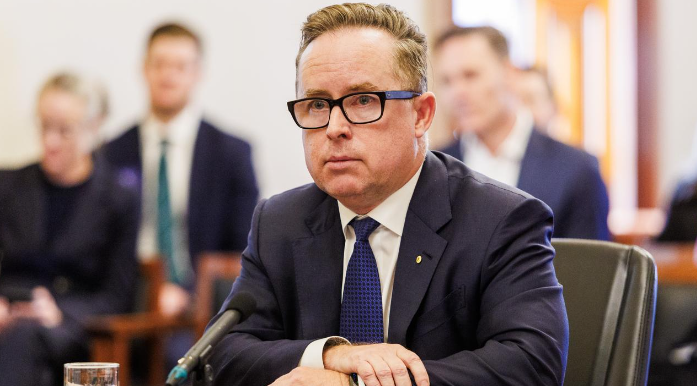Experts have responded to Donald Trump’s extraordinary declaration that the US has “found an answer to autism”, warning its impact on Australians will be “significant”.
In a press conference on Tuesday, the President announced doctors will “strongly” recommend women limit their use of paracetamol – broadly known by the brand name Tylenol in the US – during pregnancy because it “can be associated with a very increased risk” of their child being diagnosed with autism.
“So taking Tylenol is not good – I’ll say it – it’s not good,” Mr Trump said, flanked by Health and Human Services Secretary Robert F Kennedy Jr, a longtime conspiracy theorist on medical matters and known anti-vaxxer.
“For this reason, (the Food and Drug Administration) are strongly recommending that women limit Tylenol use during pregnancy unless medically necessary.”
Local reaction to the President’s claims has been swift. Australia’s medicines regulator, the Therapeutic Goods Administration (TGA), confirmed it is not investigating any link between paracetamol and autism or any “neuodevelopmental disorders more broadly”.
The painkiller remains classified as Pregnancy Category A in Australia, meaning it is considered safe for use in pregnancy. The TGA encouraged Australians to consult their doctor for clinical advice tailored to their circumstances.

Donald Trump announced on Tuesday that US doctors will ‘strongly’ recommend pregnant women limit their use of paracetamol because it ‘can be associated with a very increased risk’ of their child being diagnosed with autism. Picture: AP Photo/Mark Schiefelbein
In an interview with Nine’s Today program on Tuesday morning, infectious diseases expert and former deputy chief medical officer, Dr Nick Coatsworth, said that he did not want to “alarm pregnant women in Australia”.
“The important thing to note is that we rate paracetamol as Category A safe for pregnancy,” Dr Coatsworth told host Sarah Abo.
“However, this is not the first time this link has been raised. President Trump and his health advisers are not the first people to do this.”
Though the “odd Panadol tablet … is completely safe in pregnancy, I certainly think this is worthy of ongoing study”, Dr Coatsworth said.
“I want to reassure pregnant women, but I also want to tell you that this isn’t crank science,” he continued.
“This has been looked at before, and there are some studies which show a small risk association and many studies that do not. So we need to keep this as an open question. We also need to continue to treat pain and fever in pregnancy … and paracetamol remains the safest drug to do that.”

Former deputy chief medical officer Dr Nick Coatsworth said ‘this isn’t crank science’. Picture: Today
Professor Andrew Whitehouse is the Deputy Director of The Kids Research Institute Australia, where he leads autism research.
The Trump administration’s announcement, Professor Whitehouse told news.com.au, is “at best a misreading of science. At worst, it’s a misuse of it.”
Like Dr Coatsworth, Prof Whitehouse noted that “this has been studied for decades – and there is absolutely studies that have found an association between taking paracetamol during pregnancy and an increased chance of the child of that pregnancy being diagnosed with autism”.
But, he stressed, “there are also studies that have shown no effect, and even studies that have shown the reverse effect – that it reduces the chances. What none of these studies have shown is a causal relationship – that taking paracetamol during pregnancy causes autism”.
Mr Trump’s claim “most certainly under represents the complexity of autism. Autism, we know, is a highly genetic-based condition, and there are dozens – if not hundreds – of genes that are often involved in the development of the brain and why a child may go on to develop autism”, Prof Whitehouse said.
“To try to sheet it back to one factor such as this just completely whitewashes the complexity and nuance involved … Anyone who believes that simply does not understand the science.”
Mr Trump also urged parents to delay vaccinating their children, spouting myths about the (unproven) ties between immunisation and autism.
“I think I can say that there are certain groups of people that don’t take vaccines and don’t take pills that have no autism,” he said.
Autism Awareness Australia CEO and Director, Nicole Rogerson, told news.com.au she was “shocked and extremely disappointed to see the President weigh into areas of misinformation and pseudoscience” at a “rambling press conference that (also) weighed into a lot of anti-vax nonsense”.
“There are literally no benefits (to this announcement) unless you value the spreading of misinformation,” Ms Rogerson said, warning that the impact on Australians will be “considerable”.
“Even though this is an American announcement, this type of misinformation spreads like wildfire on the internet. We already have vaccine hesitancy post-Covid, so this worries me greatly.”

Paracetamol remains safe for pregnant women to use per Australia’s Therapeutic Goods Administration. Picture: NCA NewsWire/David Mariuz
Prof Whitehouse agreed that the impact of Mr Trump’s announcement on pregnant women in Australia “will be significant”.
“Women are, rightly, so hypervigilant about their developing baby, and any advice that casts doubt or any statements that cast doubt will be living in the back of women’s minds,” he said.
“What we do know is that women don’t take paracetamol on a whim. It’s because they might have fever or pain, and fever and pain in itself can have significant health effects on the woman and their baby.
“So the best medical advice is that paracetamol in the lowest dose possible for the shortest duration and under medical guidance.”
The more “time, attention, energy and effort that we spend focusing on this (claim) means that it’s time, energy, attention and effort away from things that matter” to autistic children and their families, he added.
“Early intervention, education, employment, housing, ageing – these are the things that worry kids and families, and these are the things that we have to focus on.”





Leave a Reply